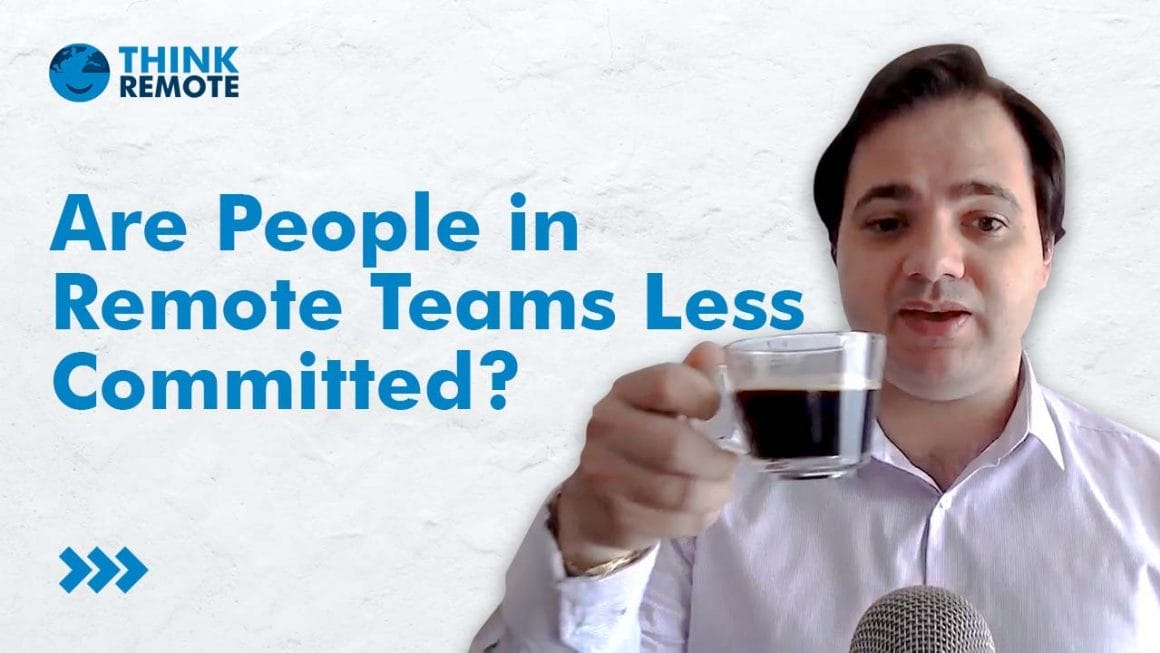Are people in remote teams less committed? Luis shares a strategy that can help teams stick together through fire and brimstone!
Remote work is based on flexibility. It allows employees to work from anywhere in the world in their own environment! However, one of the disadvantages is the lack of connection with your team members. It’s unnecessary to build working relationships every day, but once a year, it can work very well. Luis suggests that gathering with your team once a year it’s a great strategy to bond and connect with your team members. Bringing the whole team to one country, where they all work together for a week and get to know each other better and enjoy those days, can be very beneficial for your company. Of course, the expenses during that period will go up, but it is worth it!
Watch this space every day for the latest news, tips, and stories from the remote work world.
Luis:
Are people in remote teams less committed? Here’s a way, to make sure that the remote team sticks together through fire and brimstone. Welcome, ladies and gentlemen, to Virtual Coffee Chat with Louis. It’s me, and this is my coffee.
It’s starting to be warmer. Summer is closing by fast here in sunny Portugal, so I am letting go of my blazers for a while, even though it’s Monday. And until maybe I’m sponsored by a blazer company. In that case, I’ll wear the blazers. But right now, it’s warm. So let’s stick to a bit of a fresher attire.
Now, let’s talk about making your remote teams stick together through fire and brimstone. Well, here’s the magic thing about remote, is that remote means flexibility. And it also means that it doesn’t always have to be always remote. Now, that’s also not to say that the best situation is a hybrid situation, where people go to the office some days of the week and then don’t go the remaining days. That’s actually one of the most challenging situations, and even though it makes sense for some companies, I would generally be low to recommend it.
But there’s a really good argument to be made for bringing people together once or twice a year. No more than that. If you bring people together once or twice a year, your team, it could be a team within your company, or it could be your whole company. Obviously, the logistics and expenses increase in that case. Many companies will feel that it’s easier for the people to work closest together, each individual team to get together at different points in time. So that’s a nice way to chunk the expenses and make the logistics easier.
But the point is, if you bring them together, and you should make it an event, not about work. It’s okay to be work. First of all, it should be work. You shouldn’t be taking away from your people’s holidays to do that, but it shouldn’t be all about work, even though it’s okay to do work. It’s okay to do work. It’s okay to do some work, but the event shouldn’t be, “Let’s meet all to work together,” and the expenses are worth it. I remember quite vividly the first time I met the president and the vice president of my company, the C suite, the decision makers got all together for a web summit in Portugal, actually.
And even though we had worked well until then, when we met, that created a certain bond and an energy that lasted for months, even a whole year. And it was totally worth it. And again, it wasn’t fully about work, though it was about work because we were in the web summit. There were meetings to attend, there were pitches to prepare, et cetera. But when we were together, it wasn’t necessarily all about working. In fact, we had a lot of fun. We talked about a lot of things.
We specifically made time for non-work stuff. And it was amazing. It left us with an afterglow for many times to come. And then when we were back to working remotely and being super productive and not constrained by each other’s schedules, not constrained by an office, and all of those beautiful advantages that come from remote work. But the point is, it did have to happen. It’s not like we weren’t doing good before, but we just did so much better after, because we had a more complete knowledge of each other.
So that’s really why I advise. It can be challenging to think about the logistics and expenses, because that’s going to be one week where probably, the output will be a bit lower. Even if people work, they are taking time to engage with one another, to enjoy each other’s company, to learn more about one another, social activities are a must during that time. So the output will be smaller. And then, there’s of course the expenses inherent in getting all the people together in one place, paying for room and board and food and all of that.
But it’s totally worth it. It’s going to be better than any team building exercise ever made, and the effects are going to last for a long, long, long, long time. I think that during the pandemic, the companies that did well, the companies that did better among the companies that were working remotely were the ones where people have already spent some face time, some time together before. So, yeah. Don’t sell short the kind of connection that being together in the same space can create.
Defending remote work is not about negating that connection. It’s just saying that being in the same space, physical space, is not optimal for work. Never has, and the only reason we did it before it was because we had to. But it is very important for building relationships. The crux of the whole argument is you don’t need to build relationships every day at work. In fact, that can become disrupting.
Instead, optimize. Get your team together for a work-light week, let’s say, in a place, if it’s a beautiful, beautiful place where they can enjoy nature and enjoy all sorts of activities or et cetera together, better yet. But just get them together, get them to interact, get them to spend some time together. And then that will 10X their commitment to the team for the rest of the year.
So anyway, those are my two cents. I hope you enjoyed coffee. If you enjoyed this little chat, please press like, subscribe, share, and go to ThinkRemote.com. ThinkRemote.com is the place from which I do these videos, and I think that you’ll enjoy all the insight that’s available there about remote work. See you tomorrow.






